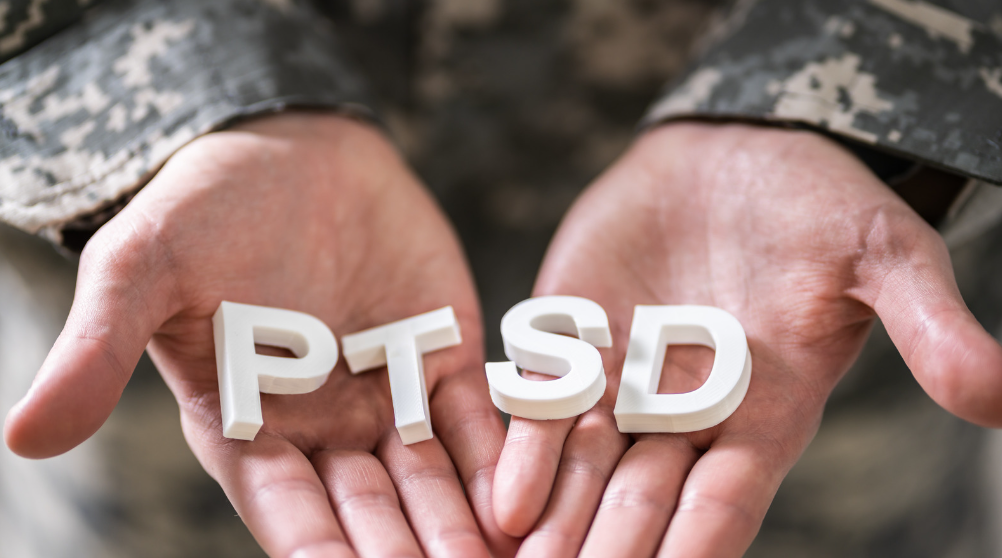The Impact of PTSD on Daily Life and How to Seek Support

Strong 8k brings an ultra-HD IPTV experience to your living room and your pocket.
Post-traumatic stress disorder (PTSD) gets in the way of life in big ways. It impacts relationships, work, and physical health. Understanding its effects helps individuals seek proper care and regain control.
How PTSD Affects Daily Life
1. Emotional Dysregulation
PTSD brings with it overwhelming emotions. Anger, sadness, and fear can become overwhelming. The feelings felt may also seem to be out of control, be that in outbursts or even retreating from society.
For instance, a minor argument at work may cause an over-the-top emotional response. This affects professional relationships and productivity.
2. Sleep Disruptions
Nightmares and sleeplessness are classic symptoms of PTSD. The sleep deprivation results in poor concentration, poor decision-making, and a foul mood. Over time, chronic sleep deprivation increases the risk of developing other health issues, including heart disease.
Keeping a schedule for sleep and seeking help from professionals can go a long way toward overcoming these problems.
3. Flashbacks and Intrusive Thoughts
Flashbacks and intrusive memories interrupt daily life. They occur without warning and bring vivid recollections of traumatic events.
For instance, a loud noise might trigger a memory of an explosion for a combat veteran. These moments make it difficult to focus or feel safe.
4. Avoidance Behaviors
People with PTSD avoid reminders of their trauma. This might mean skipping social events, avoiding certain locations, or refusing to discuss the event.
While avoidance temporarily reduces anxiety, it limits personal growth and social connections.
5. Strained Relationships
PTSD often isolates individuals. Loved ones may not understand the symptoms or know how to help. This creates tension and miscommunication.
Couples therapy or family counseling helps rebuild trust and understanding.
6. Physical Symptoms
PTSD is physically costly; headaches, fatigue, immunological weakening are part of the symptomatic landscape of PTSD. It increases one's chances of developing long-term health problems such as hypertension, gastrointestinal disorders under chronic stress.
The Importance of Seeking Support
PTSD symptoms worsen without treatment. Early intervention improves recovery outcomes.
1. Therapy
Evidence-based therapies address the root causes of PTSD. Cognitive Behavioral Therapy (CBT) helps individuals reframe negative thoughts.
Eye Movement Desensitization and Reprocessing (EMDR) reduces the intensity of traumatic memories. This technique uses guided eye movements to process difficult emotions.
Professionals offering PTSD treatment in Santa Barbara use these approaches to create personalized care plans.
2. Medication
Medication reduces symptoms like anxiety, depression, and insomnia. Antidepressants and anti-anxiety drugs are common prescriptions for PTSD.
Combining medication with therapy often yields the best results.
3. Peer Support
Group therapy connects individuals with similar experiences. Sharing stories builds a sense of community and reduces isolation.
SMART Recovery and similar groups in Santa Barbara provide safe spaces for individuals coping with PTSD.
4. Mindfulness Practices
Mindfulness reduces stress and improves emotional regulation. Techniques include breathing exercises, meditation, and yoga.
For example, a five-minute breathing exercise calms the mind and helps individuals stay present.
5. Holistic Approaches
Combining physical health with mental health care enhances recovery. Exercise reduces stress hormones and boosts mood. Nutrition supports brain health.
In Santa Barbara, outdoor activities like hiking or beach walks integrate exercise with relaxation.
Why PTSD Treatment in Santa Barbara is Effective
Santa Barbara offers an ideal setting for healing. The environment promotes relaxation and focus. Local treatment centers prioritize culturally sensitive care.
Programs at Santa Barbara meld evidence-based therapies with mindfulness, physical well-being, and individualized approaches. Holistic care addresses the mental, emotional, and physical dimensions of PTSD.
How Felicity Mental Health Supports PTSD Recovery
Felicity Mental Health is a leading provider of PTSD treatment in Santa Barbara. Our team specializes in evidence-based therapies tailored to individual needs.
We offer:
Cognitive Behavioral Therapy (CBT)
EMDR therapy
Mindfulness and holistic wellness programs
We understand the importance of personalized care. Our compassionate approach supports long-term healing and growth.
Contact Felicity Mental Health today to start your recovery journey. Regain control over your life with the support you deserve.
Note: IndiBlogHub features both user-submitted and editorial content. We do not verify third-party contributions. Read our Disclaimer and Privacy Policyfor details.


